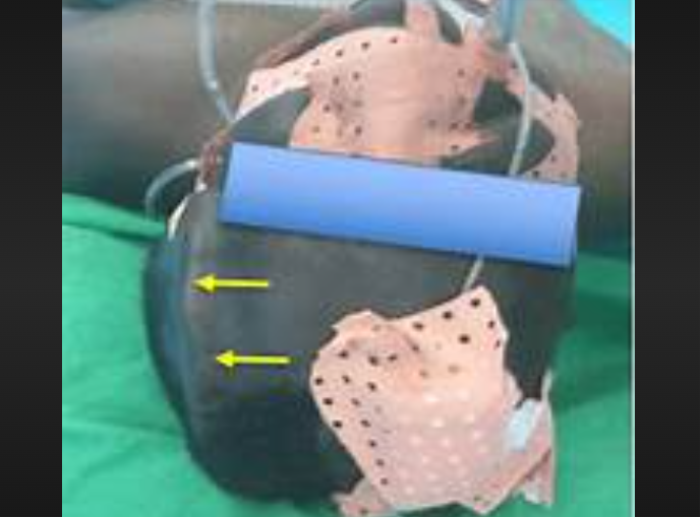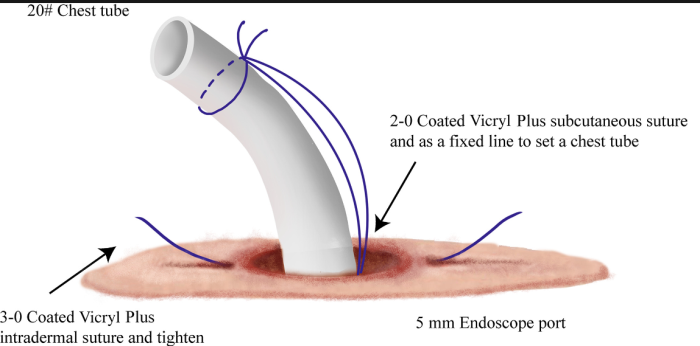Cranioplasty surgery is a crucial procedure often performed to repair skull defects or abnormalities caused by trauma, infections, or prior surgeries. While the surgery itself is significant, the recovery process after cranioplasty is equally vital to ensure a successful outcome. Patients must be prepared for an immediate hospital stay, proper wound management, and a gradual return to normal activities. This guide will help you understand what to expect during cranioplasty recovery and how to care for yourself at home, promoting faster healing and reducing complications.
Introduction: What is Cranioplasty Surgery and Why Is Recovery Important?
Cranioplasty surgery involves reconstructing the skull to protect the brain, restore aesthetics, and improve function. Recovery is crucial because it ensures proper healing of the skull, reduces the risk of infection, and helps patients regain physical and cognitive abilities, ultimately improving the quality of life.
Understanding the Immediate Post-Surgery Care for Cranioplasty Patients
After cranioplasty surgery, patients are closely monitored in the hospital for any signs of complications. Post-surgery care includes managing pain, monitoring swelling, and ensuring wound care. Patients may stay in the hospital for a few days until stable enough to be discharged.
Hospital Stay After Cranioplasty: What to Expect in the First Few Days
The first few days after surgery involve monitoring vital signs, managing pain with medications, and addressing any immediate side effects like nausea or dizziness. Doctors will observe for signs of infection, swelling, or abnormal brain pressure during this critical period.
Managing Post-Operative Pain: Medications and Techniques
Pain management after cranioplasty is essential for comfort and healing. Doctors prescribe pain medications such as acetaminophen or opioids, depending on the severity. Non-medical techniques, including cold compresses and rest, are also helpful in minimizing discomfort.
Wound Care and Management After Cranioplasty Surgery
Proper wound management is essential to prevent infections. Patients are taught how to clean and dress the surgical site regularly. Keeping the area dry and clean while following the doctor’s advice on when to change bandages is vital for faster healing.

Recognizing the Signs of Infection: Key Indicators and Preventive Tips
Infections are a potential risk after any surgery. Patients should watch for signs such as redness, swelling, discharge, and fever. If these occur, contact a healthcare provider immediately. Regular wound cleaning and hygiene practices can help reduce infection risks.
Physical Rest: The Importance of Bed Rest in the Early Recovery Phase
Rest is critical during the first few weeks after surgery. Patients must avoid strenuous activities to promote healing and prevent complications like increased intracranial pressure. Light movements, such as walking short distances, are encouraged after consultation with a doctor.
Monitoring Swelling and Bruising After Cranioplasty Surgery
Some degree of swelling and bruising around the surgical site is normal. However, if the swelling worsens or is accompanied by severe pain, it could indicate a complication. Ice packs and anti-inflammatory medications help control swelling.
The Role of Drains and Stitches in Cranioplasty Recovery
In some cases, surgeons use drains to remove excess fluids and prevent pressure build-up. Stitches or staples are typically used to close the wound, which will be removed during a follow-up appointment. Keeping these areas clean is essential to avoid infections.

Discharge Checklist: Things to Know Before Leaving the Hospital
Before being discharged, patients will receive a cranioplasty recovery plan that includes medication instructions, wound care guidelines, and a schedule for follow-up visits. Ensuring all questions are answered and prescriptions are filled before leaving the hospital is important.
Best Cranioplasty Surgery in India
Best Cranioplasty Surgery in India: India offers world-class medical facilities for Cranioplasty Surgery, where advanced techniques and expert neurosurgeons provide high success rates. Patients from across the globe seek this procedure in India due to the combination of top-notch technology and skilled professionals.
Cranioplasty Surgery Cost in India
The Cranioplasty Surgery Cost in India is highly competitive, making it an affordable option for patients compared to other countries. The cost typically ranges based on the complexity of the surgery and the hospital chosen but is still significantly lower than in Western countries.
Best Hospitals for Cranioplasty Surgery in India
Best Hospitals for Cranioplasty Surgery in India: India is home to several renowned hospitals that offer exceptional care for Cranioplasty Surgery. These hospitals are equipped with cutting-edge technology and renowned neurosurgeons, ensuring patients receive the highest quality treatment.
Best Doctors for Cranioplasty Surgery in India
The Best Doctors for Cranioplasty Surgery in India are highly experienced neurosurgeons specializing in reconstructive surgeries of the skull. These professionals are known for their expertise, having performed numerous successful cranioplasties, and are sought after for their innovative approaches.
Preparing Your Home for a Smooth Cranioplasty Recovery
Home preparation involves creating a safe and comfortable space for recovery. Patients should arrange for help with daily activities, ensure easy access to their necessities, and eliminate potential hazards like slippery floors to prevent falls during the healing phase.
Preparing for Cranioplasty Surgery: Essential Checklist for Patients and Families
Learn about the pre-surgery preparations that both patients and families need to be aware of, from medical tests to emotional support.
Emotional and Aesthetic Impact of Cranioplasty Surgery
Understand the emotional and aesthetic impacts of cranioplasty surgery and how it can enhance both physical appearance and mental well-being.
At-Home Wound Care: Cleaning and Dressing Changes
At-home wound care involves cleaning the incision site with sterile water and replacing bandages as per the doctor’s advice. Patients must keep the wound dry, especially when showering, and avoid touching the area unnecessarily to prevent infection.
Managing Cognitive and Physical Fatigue During Recovery
Cognitive fatigue is common after cranioplasty due to the brain healing process. Patients may experience memory lapses or difficulty concentrating. Rest and engaging in light mental exercises, like puzzles or reading, can help rebuild cognitive strength over time.
Tips for a Safe and Comfortable Sleeping Position Post-Cranioplasty
Sleeping in an elevated position with the head slightly raised can reduce swelling and improve comfort. Patients should avoid sleeping on the side where surgery was performed to avoid pressure on the wound site and ensure better healing.
Nutritional Support for Faster Healing After Cranioplasty
A balanced diet rich in vitamins, minerals, and protein promotes faster healing. Foods like leafy greens, lean meats, and fruits support tissue repair, while staying hydrated ensures that the body functions optimally during recovery.
The Role of Hydration in Promoting Healing After Surgery
Staying hydrated is key to a smooth recovery as it helps flush toxins from the body, supports immune function, and promotes tissue repair. Drinking plenty of water and avoiding caffeinated beverages is recommended.
How to Monitor Your Temperature and Recognize Fever Symptoms
Monitoring body temperature is crucial after surgery, as a fever could indicate infection. Patients should use a reliable thermometer and report any readings above 100.4°F to their healthcare provider immediately.
Managing Cognitive Challenges: Memory, Focus, and Mental Clarity
Patients may experience temporary cognitive issues post-surgery, such as difficulty concentrating or forgetfulness. These can improve over time with rest, light cognitive exercises, and rehabilitation therapy if needed.
Rehabilitation After Cranioplasty: Physical Therapy and Cognitive Exercises
Physical therapy and cognitive rehabilitation play a vital role in cranioplasty recovery. Patients may need exercises to restore motor skills, balance, and cognitive functions, helping them gradually return to their daily activities.
Gradual Resumption of Daily Activities: From Light Chores to Physical Activity
Patients are advised to slowly resume daily activities like light housework and walking. More strenuous tasks should only be undertaken after approval from the doctor, typically after six to eight weeks.
Driving and Work: When Is It Safe to Resume Normal Activities?
Driving or returning to work depends on how well the patient is healing and their overall physical and cognitive condition. Most patients can resume these activities within a few months, though clearance from a doctor is essential.
Recognizing and Managing Emotional Changes Post-Surgery
Some patients may experience emotional shifts after surgery, including feelings of anxiety or depression. Psychological support from professionals, family, and friends can be highly beneficial during this time.
Dealing With Headaches: Common Causes and Relief Techniques
Headaches are common after cranioplasty surgery due to changes in intracranial pressure. Over-the-counter medications, rest, and hydration often help alleviate discomfort, though persistent headaches should be discussed with a doctor.
The Role of Psychological Support in Cranioplasty Recovery
Psychological well-being is an important part of recovery. Patients may benefit from counseling or support groups to address anxiety, mood changes, or other emotional challenges that may arise post-surgery.
Follow-Up Appointments: Monitoring Progress and Recovery Milestones
Regular follow-up appointments allow doctors to monitor healing, address any complications, and ensure the implanted materials are integrating properly. These visits are crucial for long-term recovery success.
Long-Term Care and Monitoring After Cranioplasty
Long-term care may involve monitoring skull healing and managing any residual symptoms like headaches or cognitive challenges. Patients should follow their healthcare provider’s advice on continued rehabilitation and medication management.
Recognizing Potential Complications and Knowing When to Seek Help
While rare, complications like infection, material rejection, or skull irregularities may occur. Patients should stay alert for warning signs like fever, increased pain, or wound discharge, and contact their doctor immediately if any arise.
Lifestyle Changes to Support Long-Term Recovery After Cranioplasty
Adopting a healthier lifestyle, including a balanced diet, regular physical activity, and stress management, can significantly improve long-term recovery outcomes and prevent further health issues.
FAQs About the Cranioplasty Surgery Recovery: What to Expect and How to Care for Yourself
How long is the recovery time after cranioplasty?
The typical recovery time after cranioplasty surgery is about 6-12 weeks, though this varies depending on the patient’s health and the complexity of the surgery.
What precautions should I take after cranioplasty?
Precautions include avoiding heavy lifting, strenuous activities, and situations where the head may be injured. Follow your doctor’s advice on wound care and activity levels during recovery.
How can I manage post-operative swelling?
Swelling is common after surgery and can be managed with cold compresses, elevation of the head, and taking prescribed anti-inflammatory medications.
When can I shower after cranioplasty surgery?
Patients can typically shower a few days after surgery, but they should avoid soaking the incision and use waterproof bandages until the doctor advises otherwise.
When can I return to work after cranioplasty?
Most patients can return to work within 4-8 weeks, but this depends on the nature of the job and individual recovery progress. Always consult your doctor first.
Is physical therapy necessary after cranioplasty?
Physical therapy is often recommended to help restore motor functions and strength, especially if the surgery affected cognitive or physical abilities.
Will I need a protective helmet after cranioplasty?
In some cases, a protective helmet may be required during the recovery period to protect the skull until it fully heals. Your surgeon will provide guidance on this.
Can I drive after cranioplasty surgery?
Patients should avoid driving until they are fully recovered and cleared by their doctor. This usually occurs several weeks after surgery.
Are headaches normal after cranioplasty?
Yes, headaches are common due to changes in intracranial pressure. They typically subside with time, but persistent or severe headaches should be reported to your doctor.
Are there long-term risks associated with cranioplasty surgery?
While rare, long-term risks may include infection, skull irregularities, or complications related to the implant material. Regular follow-ups with your doctor help to monitor and prevent these issues.